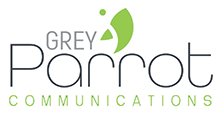One the most common and difficult conversations I have with clients revolves around the type of language to use in their content. Many of my clients are in software, tech or engineering firms and so the concepts, products and service that I need to write about are “high-level”. As I strive to understand the industry, I am inevitably confronted with jargon and acronyms (more about acronyms in another blog). Jargon includes special words or expressions that are used by a particular industry, profession or group. They are often difficult for others outside of these groups to understand.
Keep it simple
No one wants content that is difficult to understand, so a few guidelines help. My rules for writing include: to be as clear and concise as possible, to make content that people will want to read, and to make what I write easy to understand. Research has shown that in this digital age, people spend about 36 seconds reading an article. That is not long so every word you write has to count. You need to choose your words wisely, so you hold your readers’ attention. Choosing words that bring clarity is the way to go.
Why do people use jargon?
Using jargon breaks all of the above rules. Jargon is not be something people want to read because it excludes them and makes them outsiders. It makes reading difficult to understand and then clarity is lost. So why do people insist on using it? There are several reasons, they believe:
- People in my world use this kind of language
- Jargon allows me to be precise and efficient
- I want to use the language that is used in my field
- I want to impress people
The problem with the reasoning above is that it assumes people in your field or world won’t understand normal English. In some cases, using technical terms can help you communicate with other specialists who possess the same level of expertise as your own, but how can you be sure? This attitude assumes that your audience includes only people in your world. If it is broader, then, as mentioned above, your writing disrespects its audience by excluding it. While jargon may be precise in certain cases, it can also slow down reading comprehension. Finally, I find it much more impressive to be able to explain complex concepts in layman’s terms.
When is it ok to use jargon?
Sometimes jargon becomes so well-known that everyone understands it and uses it with ease. An example of this is the word DNA. It is jargon and it is an acronym, so it is a double whammy kind of word. However, when a term has been widely used, it is safe to include it in your writing. When the meaning of the acronym is no longer important, it is also safe to use. DNA checks both of those boxes. People know what it is (a carrier of genetic information) and don’t care what it stands for (deoxyribonucleic acid).
In other cases, you may be legally required to use a term. For example, in a contract you may need to use a term that is considered jargon in order to be precise and avoid ambiguity.
Finally, you can use jargon when you define it at the beginning of a document and continue to use it throughout the rest of the text.
When to get rid of jargon
If you can find a familiar term that everyone understands and is as clear as the jargon, then by all means, get rid of the jargon and replace it.
It the jargon is a term that muddies the meaning rather than clarifying the meaning, definitely avoid the jargon. An example of this is “the involuntary conversion of a 747” instead of “a 747 plane crash”, or “I didn’t have the bandwidth to take on another project”. Couldn’t we just say you didn’t have the time?
Please avoid using jargon that does not belong in the sphere of the document. If you are writing about advertising, why would you use legal terms, or medical ones? To use the example above, talking about bandwidth in. a document about Wi-Fi and internet service providers could make sense.
In general, I am not a big fan of jargon. It rarely helps a reader perceive information. If your content has jargon strewn about and you need a quick clean up, contact me. If you content has no jargon but still doesn’t wow your readers, lacks pizazz or is just boring, I can help.



0 Comments